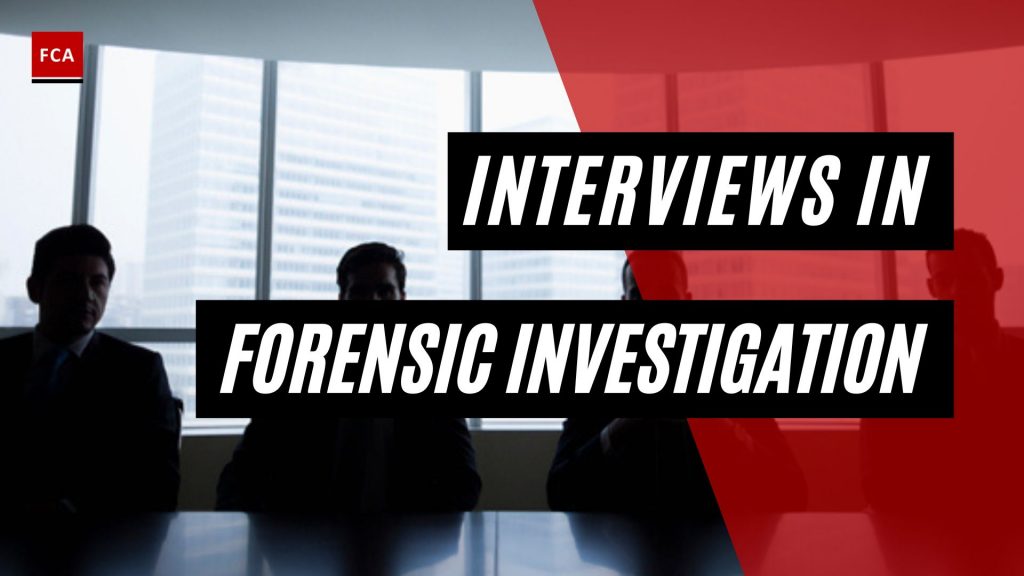Interviews in forensic investigation. Witness interviews are an essential part of most investigations. While documentary evidence can provide the underlying facts of a case, the accounts given by witnesses deliver the context and detail of what has happened. They can supply vital background information, shed light on the motivations of those involved and allow for an individual’s credibility to be assessed. However, the timing, preparation, record-taking, content, and use of the interviews require careful consideration.

Interviews In Forensic Investigation
Witness interviews can serve several purposes in the context of an investigation, including the scope of the investigation, understanding the facts and issues, understanding accountability and defenses, and assessing the credibility of individuals and their accounts.
Interviews in this context can present some difficulties because of the myriad of employment, criminal, civil and regulatory issues that can arise and the fact that the interests of the company and the witness are often not aligned.
These interviews are normally conducted confidentially and can be premised on a need to maintain legal privilege and the duty of confidence owed between an employer and employee. This can often be at odds with the expectations of some authorities for the company to supply details of the witnesses’ accounts.
There is often confusion between a company’s right to conduct its inquiries into allegations of wrongdoing, including interviewing its employees, and the suggestion by the authorities that its inquiries could (depending on how they are conducted) be detrimental to a criminal or regulatory investigation. In addition, the position surrounding legal privilege in the context of witness interviews has become more complicated over the past few years after several court judgments.
Broadly speaking, witness interviews in investigations can be divided into preliminary or scoping interviews and substantive interviews. They should be distinguished from any employment or disciplinary interviews.

Preliminary Interviews
Preliminary or scoping interviews may be appropriate at the outset of an investigation to look for background information, identify further sources of evidence, obtain a quick understanding, and provide context to an allegation. These interviews will generally be conducted at the start of the investigation and, depending on the specific circumstances, may take place before any firm view has been reached on the terms of reference or extent of material that will be reviewed. They are more likely to be carried out with employees who may have knowledge of matters under investigation but are not at direct risk of any criticism. It may also be important to undertake interviews with whistle-blowers at this stage.
Substantive Interviews
Substantive interviews will generally take place after the most relevant material has been reviewed. The main purpose is to obtain a comprehensive understanding of what went on, to provide explanations of vital documents in the case, and, if necessary, to test the account given. Most of the time, these interviews will be used to inform an understanding of any individual and corporate liability and any defenses. The timing is of the essence and can depend on several factors, including the available evidence, whether the authorities are already involved and whether civil and criminal proceedings are contemplated.
Final Thoughts
The first stage and lowest level of interaction is interviewing a potential suspect. At this point, the individual cannot even be classified as a suspect. Suspects frequently report criminal events while posing as witnesses or even victims of the crime, as we discussed in our chapter on witness management. The next level of interaction is questioning a suspect. A suspect will be questioned if there is circumstantial evidence that allows the investigator to detain that suspect.
Interrogation is the most serious level of questioning a suspect, and it occurs after reasonable grounds for belief have been established and the suspect has been arrested for the offence under investigation.








